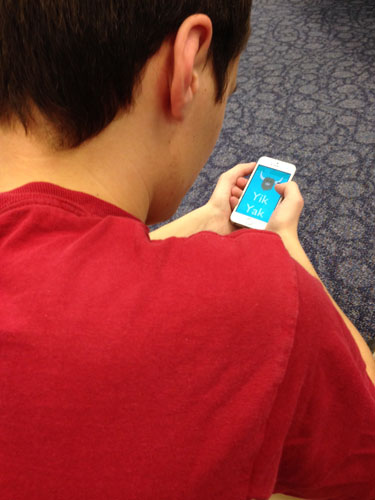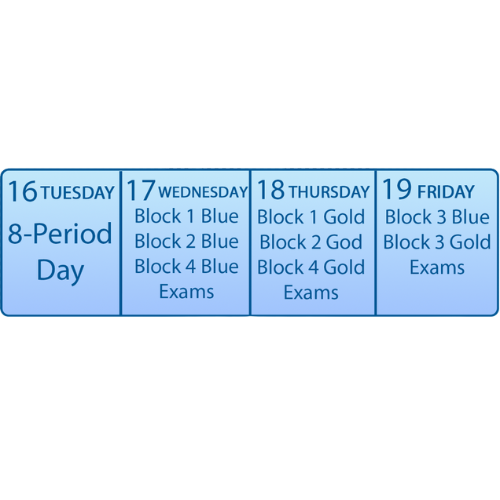Launched in December of 2013, Yik Yak is an application that iTunes ™ describes as a “local bulletin board”. This new form of social media allows users to anonymously view and post comments to a group that includes only people within a 1.5-mile radius of each other.
Last week, Principal Dr. Brian Wegley made an announcement and sent an email regarding the cyber-bullying taking place on the app and suggested that all of South stop participating in its use.
In a Los Angeles Times article published on March 8, one of the Yik Yak co-founders disclosed the app’s intended purpose.
“We created Yik Yak to give college students a private platform for communicating with their entire campus,” one of the co-founders said in the LA Times piece. “Yakkers have used the app to find a place to crash, report lost and found items and alert other students about deals at nearby bars.”
Although intended to capture the attention of college students, Yik Yak has become a social media outlet for high schoolers and middle schoolers as well.
According to Wegley, South and many other suburban high schools have been increasingly concerned about the large amount of demeaning posts that Yik Yak provokes due to its anonymous nature. In order to prevent further cyber-bullying through Yik Yak, Wegley suggested that all of South refrain from sharing, posting, or using the application in any way.
In addition to Wegley’s objection towards Yik Yak, some students of South’s Media Collage Class also expressed disapproval towards the new form of social media, according to Scott Glass, Media Collage teacher.
Participants in the protest on May 15 to try to “put a face” to the victims of Yik Yak cyber-bullying. Glass said his students had been in the process of planning their protest before Wegley made the announcement about the app.
The Media Collage students separated into groups for the protest and stood in prominent parts of South with specific quotes from Yik Yak written on their shirts or on signs, Glass said. Some of them tied themselves with ropes. By doing so, the protesters hoped that students would understand the metaphor of how comments on Yik Yak confine people in real life and damage their reputations, even if the information may not be true, and to emphasize the idea that the victims of Yik Yak’s bullying are being talked about against their own will, according to senior Jackie Golding, one of the protesters.
“These were things that had actually been said about people,” Golding said. “[We were] standing up for people that were getting talked about.”
The protesters received a variety of responses from South students and felt that their actions made a statement worth hearing, senior and protester Chris Baylaender said. Golding recalls some of the reactions from the students she encountered.
“Some people came up to me and asked, ‘Should I help you?’, ‘Can I help you?’” Golding said. “It was really interesting to see people’s reactions and that they did really want to help. A lot of people did walk by, but a fair amount stopped and talked to me and asked me questions… It was really interesting to see that people I didn’t even know cared. I think it had to do with [seeing a face with the attack]. I think it really had an effect on people.”
According to senior and protester Grant Grace, the protest gave students an example of what it feels like to be a victim of Yik Yak bullying.
“I don’t think you can completely stop the app, but we can try to persuade people to stop talking bad about people,” Grace said. “We gave that example to people of how it feels for the victims of it, so maybe they’ll think twice before posting on Yik Yak.”
Although primarily nervous about the protest, Golding believes it was worth it. Hopefully South students will stop using the app in negative ways, she said.
“Somebody after school came up to me and said how powerful [the protest] was,” Golding said. “I got a lot of positive comments from doing it even though it was really nerve wracking. It was a huge risk, but it was worth it.”








